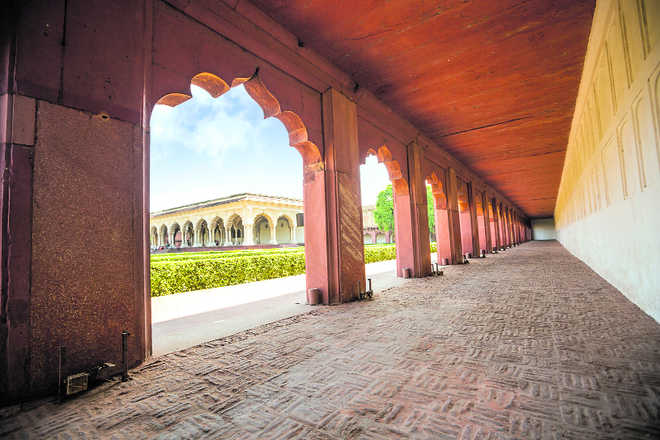
The book offers a fascinating peep into the routines and ceremonies of the Indian royalty of pre-Independent India. istock
Aradhika Sharma
When you read the book, it’s as if you’re watching an Indian Television soap opera on prime time. Gold Dust of Begum Sultans has plenty to offer in terms of narrative and excitement — three strong female characters, changing times, the transition of India from the feudal to the modern and power struggles in the empire as well as in the homes run by tough matriarchs. Embellish all of this with the pomp and show and rituals in the courts of the nawabs, and you have a rather compelling read.
The book is a historic tale first published in Urdu in 1989 under the name of Sunehri Rait by Zubaida Sultan, recently translated by her kinswomen Zakia Zaheer and Syeda Saiyidain Hameed. Set in the post post-1857 era, in Rohilkhand (Uttar Pradesh), it narrates the story of the rise and fall of the fortunes of the Rohillas. Nawabiat is on a decline after the revolt of 1857 and the old, crumbling order must give way to the new. Education is gaining importance even over noble birth and the antiquated order is losing relevance.
Yet, in the zenana of Mohammadpur (Rampur in reality), three generations of women struggle for supremacy and vie with each other for power — the equation keeps shifting with sometimes one, and sometimes the other gaining control. The author recounts the lives of Qamar Zamani Begum, her daughter Jahanara and Jahanara’s daughter-in-law, Shehzadi — all three women are irrevocably dedicated to Mansoor, who is Qamar Zamani’s grandson, Jahanara’s son and Shehzadi’s husband.
The troika of women who belong to the family of Akbar Ali Khan have their own particular crosses to carry and personal sets of problems to resolve. Akbar Ali Khan is forced to escape his home in Mohammadpur after he refuses to execute the horrid deed his master, the Nawab of Mohammadpur, orders him to do. Death is inevitable, but he settles his family safely in Nanital. However, as he returns to Mohammadpur and to certain death, his gentle wife Qamar Zamani, almost overnight, turns into a woman with steely resolve, transforming into a harsh, unbending and unloving matriarch.
Qamar Zamani’s young daughter is married to the handsome Ammar Ali Khan, who pledges that he will live with his wife’s family. Jahanara gives birth to Mansoor and Mumtaz Jehan and while the women are involved in the upbringing of the children, Ammar Ali Khan finds another calling, leaving home forever and his young wife bereft of a husband’s love.
Jahanara’s exquisitely beautiful daughter-in-law, Shehzadi, becomes a mere puppet in the hands of her mothers-in-law, as one child after another is taken away from her, until she comes unto her own, changing the power equation of the family. Thus, every woman must go through the crucible of suffering through which each of them emerges strong and formidable.
At the same time, everything is changing drastically. The family moves to Aligarh and sees that a new world is emerging with the Aligarh Muslim University becoming the center of learning and dignity. The fate of the family rises and falls with the changing times. Fortunes are lost and the untold wealth that was taken for granted a few decades ago is now a thing of the past, as the worried women of the zenana learn to cut corners — quite different from the opulent lifestyle they had been born to.
The book offers a fascinating peep into the routines and ceremonies of the Indian royalty of pre-Independent India. Farshi garments, trousseaus and jewellery; feasts, parties and hunts; mushairas and nikahs; weddings of dolls that are the miniature version of the real thing — complete with the wedding feast and gifts. It’s an enchanting world and an unreal one and its almost inevitable that the old world comes crashing, making way for the new.
The women characters are strongly drawn. The male ones, however, are weak in comparison. The ambience and etiquette of the Nawabi family are nicely captured, taking you back into more gracious times, gently urging you to turn off the television, and turn the pages.



























